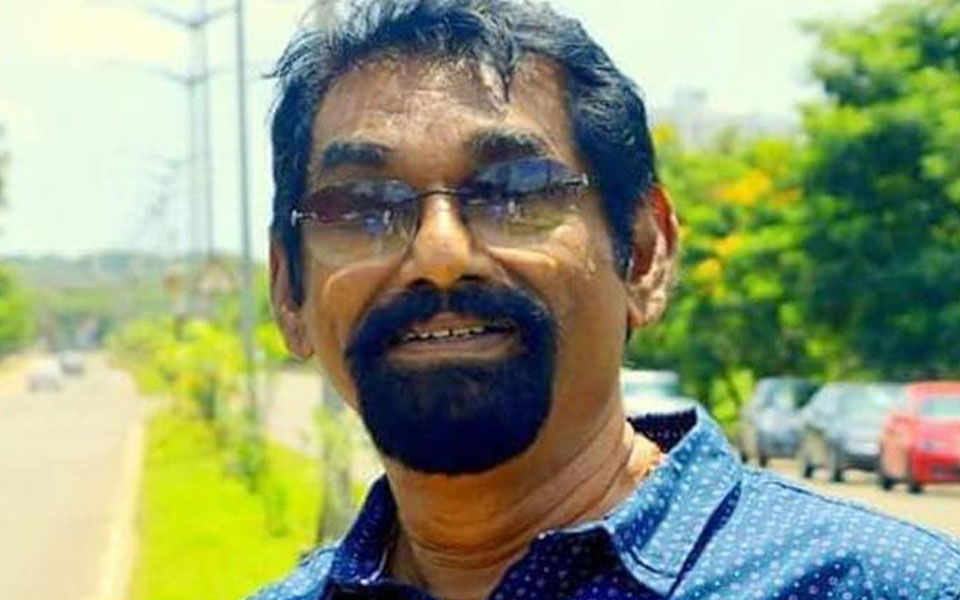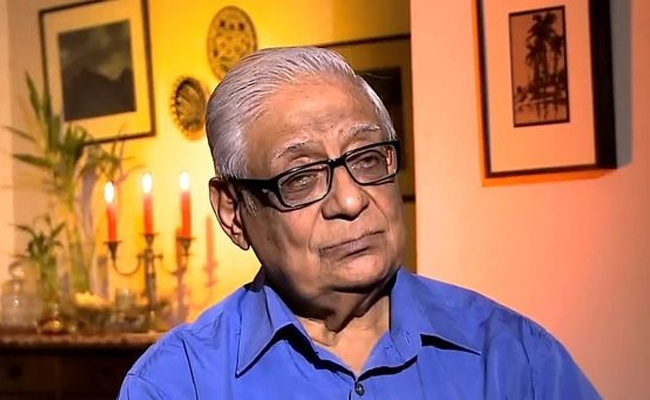Kochi, Oct 2 : Veteran Malayalam film personality Thampi Kannanthanam passed away on Tuesday at a private hospital near here after several days of illness, the film fraternity said. He was 65.
Kannanthanam was a producer, director and have also acted in a few films.
He was admitted to the private hospital last week.
A multi-faceted film personality, Kannanthanam was a hugely successful and celebrated director and often regarded as the one who took Mohanlal to his career high in "Rajavinte Makan" in 1986. After this film, Mohanlal had never looked back in his career.
Mohanlal told the media over the phone from Kulu-Manali in Himachal Pradesh, that without any qualms he would say Thampi Kannanthanam moulded him into the star he was today.
"A long time good friend of mine has passed away and his long standing wish of making a sequel to our block buster 'Rajavinte Makan' now will never happen again," said Mohanlal.
In all, Kannanthanam directed 16 films between 1983 and 2004 and produced seven films while he acted in 10.
Kannanthanam began as an assistant to ace filmmakers Sasikumar and then with Joshy and when he started on his own, most of what he did, turned out to be a success.
Known for his jovial nature and one with no airs, he was liked by all sections of the film industry.
Let the Truth be known. If you read VB and like VB, please be a VB Supporter and Help us deliver the Truth to one and all.
Mumbai (PTI): NCP (SP) MLA Rohit Pawar on Wednesday alleged that someone was trying to save VSR Ventures in connection with the plane crash that killed Maharashtra deputy chief minister Ajit Pawar, and claimed that the AAIB preliminary probe vindicated the doubts earlier raised by him.
He also accused VSR company of indulging in several grave lapses in the past.
The Learjet 45 aircraft, operated by VSR Ventures, crashed near the Baramati air strip in Pune district on January 28, killing Pawar and four others.
In its 22-page preliminary report on the VSR Venture's Learjet plane crash, the Aircraft Accident Investigation Bureau (AAIB) said the visibility at the time of the crash was below the required level. It also flagged about fading marks on the runway and presence of loose gravels on the runway surface.
Pawar said, "I am not against VSR or the Directorate General of Civil Aviation (DGCA). Ajitdada was travelling in a VSR aircraft. Unless we go into the depth of every aspect, we will not know the truth. But someone is trying to save this company. The doubts we had raised have been proven correct in the inquiry report."
He also claimed that the AAIB report contained discrepancies, including mentioning Baramati as a district, and questioned how seriously the probe had been conducted.
Pawar, who has been regularly holding press conferences to raise issues concerning the Baramati plane crash, also contested the report's conclusion that the aircraft hit trees before crashing.
"The report says the aircraft struck trees and then fell. But there are no trees at that spot. There is only a small bush which the aircraft did not even touch. What is stated in the report about hitting trees is incorrect," he said.
Pawar further alleged that VSR Ventures had displayed irresponsibility on multiple occasions, citing an incident involving the then chief minister Eknath Shinde's Davos visit on January 20, 2023.
He claimed that the aircraft carrying Shinde had entered Iranian and Iraqi airspace without overflight permission, following which fighter jets from the two countries allegedly warned of action, forcing a change in route from Bahrain to Zurich.
"There have been several such grave lapses by VSR," he said.
Pawar demanded to know from where VSR Ventures derived its "audacity", and sought details about its investors and officials, though he added that he was not personally concerned with who they were.
Drawing a comparison, he said the Central Bureau of Investigation (CBI) had taken over the probe into actor Sushant Singh Rajput's death within two days, whereas a month had passed since the Baramati crash without a similar action.
He claimed that VSR Ventures had two directors and three shareholders, and that there were eight common names across two related companies.
He further alleged that the owner of VSR was related to the Union Civil Aviation Minister and questioned why the company, though registered in Delhi, had made high-value investments in Jubilee Hills (upscale area in Hyderabad) at rates allegedly Rs 17 crore above the market price.
The MLA representing the Karjat-Jamkhed assembly constituency in Ahilyanagar district also raised concerns about the legal and institutional framework of the AAIB under the 2017 rules, claiming it was neither a statutory nor an autonomous body and remained answerable to the secretary and the minister, besides being attached to the DGCA.
"There is no independent investigative agency," he alleged.





